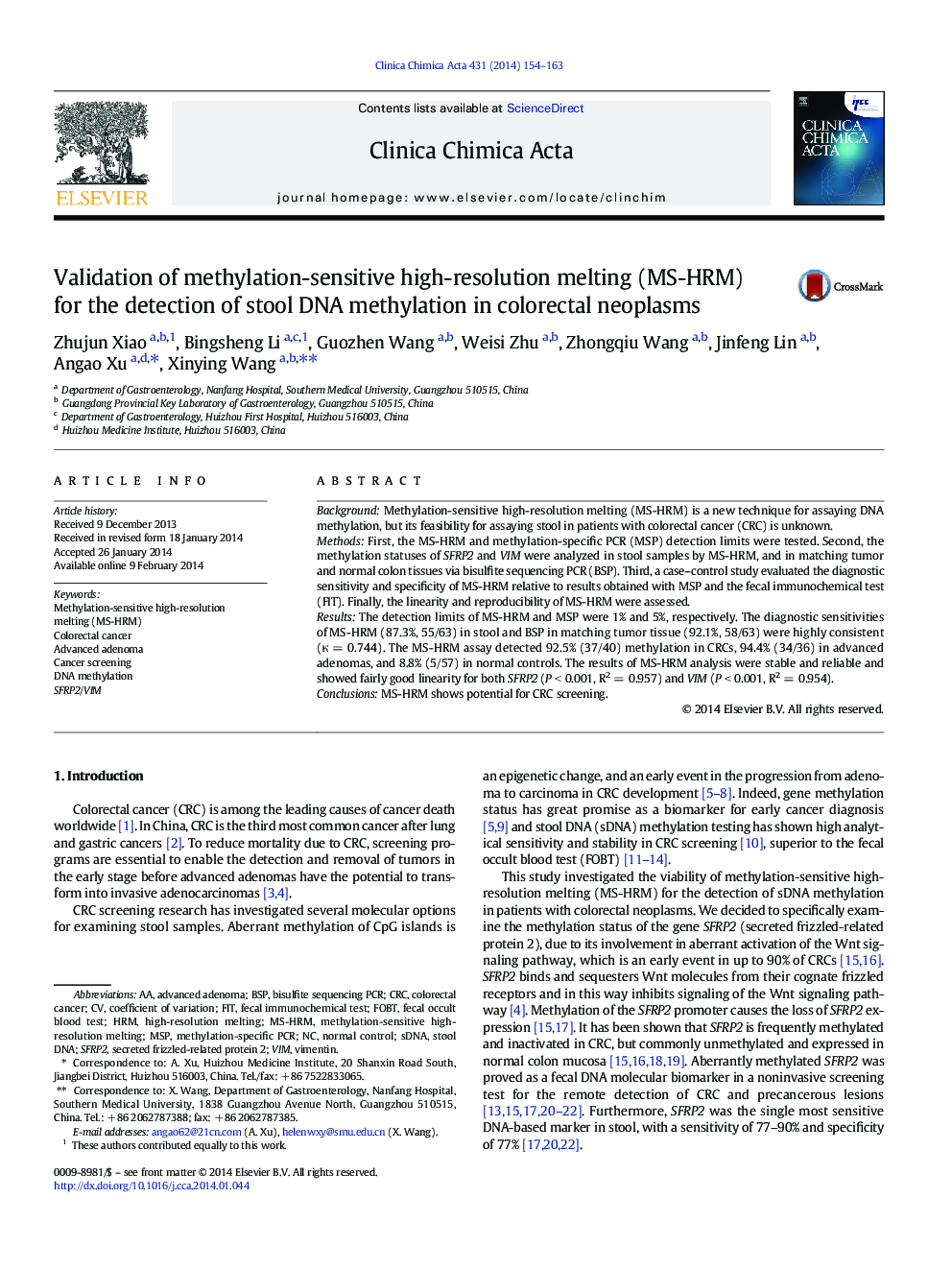| Article ID | Journal | Published Year | Pages | File Type |
|---|---|---|---|---|
| 1965464 | Clinica Chimica Acta | 2014 | 10 Pages |
•The MS-HRM shows superior detection limit for DNA methylation.•The feasibility of using MS-HRM to screen for colorectal neoplasms was demonstrated.•The MS-HRM assay shows good performance in a case–control test.•The results of MS-HRM analysis were stable and reliable and showed fairly good linearity.•MS-HRM has great potential in stool DNA methylation detection for colorectal cancer screening.
BackgroundMethylation-sensitive high-resolution melting (MS-HRM) is a new technique for assaying DNA methylation, but its feasibility for assaying stool in patients with colorectal cancer (CRC) is unknown.MethodsFirst, the MS-HRM and methylation-specific PCR (MSP) detection limits were tested. Second, the methylation statuses of SFRP2 and VIM were analyzed in stool samples by MS-HRM, and in matching tumor and normal colon tissues via bisulfite sequencing PCR (BSP). Third, a case–control study evaluated the diagnostic sensitivity and specificity of MS-HRM relative to results obtained with MSP and the fecal immunochemical test (FIT). Finally, the linearity and reproducibility of MS-HRM were assessed.ResultsThe detection limits of MS-HRM and MSP were 1% and 5%, respectively. The diagnostic sensitivities of MS-HRM (87.3%, 55/63) in stool and BSP in matching tumor tissue (92.1%, 58/63) were highly consistent (κ = 0.744). The MS-HRM assay detected 92.5% (37/40) methylation in CRCs, 94.4% (34/36) in advanced adenomas, and 8.8% (5/57) in normal controls. The results of MS-HRM analysis were stable and reliable and showed fairly good linearity for both SFRP2 (P < 0.001, R2 = 0.957) and VIM (P < 0.001, R2 = 0.954).ConclusionsMS-HRM shows potential for CRC screening.
